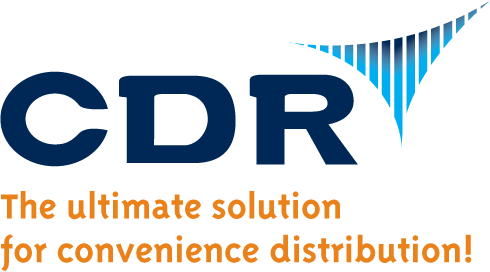Meeting food safety standards has always been a cornerstone of success for convenience distributors. But with the upcoming FSMA Rule 204 compliance deadline set for January 2026, ensuring your operations align with regulatory expectations is no longer optional—it’s essential.
FSMA Rule 204 focuses on enhancing traceability throughout the food supply chain, with specific requirements for tracking Critical Tracking Events (CTEs) and capturing Key Data Elements (KDEs). For convenience distributors, this rule isn’t just about avoiding penalties; it’s about safeguarding your reputation and building trust with retail partners and consumers.
In this post, we’ll break down FSMA Rule 204 in plain terms, explain its implications for convenience distributors, and provide actionable insights to help you stay ahead of the curve.
What Is FSMA Rule 204?
The Food Safety Modernization Act (FSMA) was created to prevent foodborne illnesses by improving traceability and accountability in the food supply chain. Rule 204, a specific component of FSMA, takes this effort further by requiring businesses to document the journey of foods on the FDA’s Food Traceability List (FTL). This list includes high-risk products like fresh produce, dairy, seafood, and ready-to-eat items.
At the core of FSMA Rule 204 are two critical concepts:
- Critical Tracking Events (CTEs): These are key moments in a food product’s lifecycle that must be recorded, such as:
- Receiving: When products arrive at your facility.
- Transformation: When products are processed, combined, or repackaged.
- Shipping: When products leave your facility, headed to the next stop in the supply chain.
- Key Data Elements (KDEs): These are the data points that must be captured during each CTE. Examples include the product’s lot number, quantity, and the date and time of the event.
For convenience distributors handling a diverse range of food products, understanding and implementing these requirements is critical to achieving compliance.
Challenges of FSMA Compliance for Convenience Distributors
For convenience distributors, FSMA Rule 204 compliance introduces unique challenges due to the nature of the industry. Managing a wide range of products—many of which fall under the Food Traceability List (FTL)—requires precision and coordination. Here are some of the key obstacles:
- Diverse Product Lines: Convenience distributors often handle a mix of fresh, frozen, and shelf-stable items. Ensuring traceability for perishable goods like dairy and packaged snacks, while maintaining efficiency, can be complex.
- Lot Tracking Across Suppliers: Many products arrive from various suppliers, each with its own labeling and tracking processes. Standardizing these inputs to meet FSMA requirements demands significant collaboration.
- Record-Keeping Burden: FSMA Rule 204 requires maintaining traceability records for up to 24 months. For businesses with high turnover or limited system capabilities, ensuring data accuracy and easy retrieval can be daunting.
- Operational Disruptions: Implementing new systems or processes to meet compliance standards might temporarily disrupt workflows, especially if staff training isn’t prioritized.
Understanding these challenges is the first step toward overcoming them. With proper planning and the right tools, convenience distributors can streamline compliance while maintaining operational efficiency.

Benefits of Proactive Compliance
While FSMA Rule 204 compliance can seem overwhelming, the benefits of taking proactive steps far outweigh the risks of falling behind. Here’s why prioritizing compliance is a strategic move for convenience distributors:
- Avoid Costly Recalls and Penalties: By adhering to traceability requirements, you reduce the risk of regulatory fines and the significant costs associated with product recalls.
- Strengthen Retailer Trust: Retail partners rely on your ability to deliver safe, traceable products. Demonstrating compliance builds confidence and strengthens these critical relationships.
- Streamline Operations: Implementing systems for lot tracking and data capture doesn’t just meet regulatory requirements—it often improves internal processes, enhancing overall efficiency.
- Safeguard Your Reputation: In today’s market, consumers are increasingly concerned about food safety. By staying compliant, you position your business as a reliable and responsible player in the supply chain.
Proactive compliance is more than just a legal requirement—it’s an investment in your business’s future.
The Role of ERP Systems in FSMA Compliance
Convenience distributors face a daunting task in meeting FSMA Rule 204 requirements, but leveraging the right technology can make compliance more manageable. This is where ERP systems like DAC ERP come into play, offering the tools necessary to streamline traceability and support compliance efforts.
Key ways DAC ERP supports FSMA compliance include:
- Lot Identification and Traceability: DAC ERP helps distributors identify items that require lot tracking and maintain detailed sales and shipping histories, a critical foundation for meeting traceability requirements.
- Barcode Scanning for KDE and CTE Tracking: DAC ERP’s RF Warehouse System integrates barcode scanning for receiving, inventory control, and product movement. This functionality ensures accurate data capture for Critical Tracking Events (CTEs), such as receiving and shipping, while supporting traceability needs.
- Record-Keeping for Compliance: DAC ERP supports multi-year sales and shipping history retention, ensuring distributors are well-positioned to meet the FSMA Rule 204 requirement of maintaining traceability records for up to 24 months.
- Integration with Complementary Tools: For businesses seeking advanced tracking or KDE data capture, DAC ERP seamlessly integrates with third-party solutions like ProCat’s tools. These integrations provide features such as hands-free scanning and enhanced inventory accuracy, helping businesses optimize their compliance workflows.
With these robust features and its flexible design, DAC ERP equips convenience distributors with a strong foundation to meet FSMA requirements and enhance operational efficiency.

Actionable Steps to Prepare for FSMA Rule 204
With the compliance deadline quickly approaching, convenience distributors need to act now. Here’s a practical roadmap to help you prepare:
- Identify High-Risk Products: Review the FDA’s Food Traceability List (FTL) to determine which of your products are affected.
- Collaborate with Suppliers: Ensure your suppliers are providing the necessary traceability information, such as barcoded lot numbers and production identifiers.
- Audit Your Current Systems: Evaluate whether your existing ERP system supports FSMA Rule 204 requirements. Identify gaps in functionality. DAC ERP already offers essential traceability features, such as maintaining historical sales and shipping data, and CDR Software is exploring additional capabilities like GS1 barcode integration to further enhance compliance.
- Train Your Team: Educate employees on capturing KDEs accurately and maintaining proper records. A well-trained staff reduces errors and ensures compliance.
- Conduct Mock Audits: Test your readiness by simulating an FDA inspection. Use this as an opportunity to refine your processes and address any weaknesses.
By taking these steps and leveraging tools like DAC ERP, you can ensure your business is prepared for FSMA Rule 204 requirements while maintaining operational efficiency.
Conclusion: Don’t Wait to Prepare
FSMA Rule 204 is more than a regulatory requirement—it’s a pivotal opportunity to enhance your operations and build trust with your partners and customers. While the January 2026 compliance deadline may seem distant, the steps needed to meet these requirements take time, planning, and the right tools.
Convenience distributors who take a proactive approach to compliance can turn what may feel like a burden into a competitive advantage. By leveraging modern ERP systems and implementing traceability best practices, you can streamline operations, reduce risks, and position your business as a leader in food safety and efficiency.
Stay Ahead with CDR Software
Are your operations ready for FSMA Rule 204? At CDR Software, we understand the unique challenges faced by convenience distributors. Our DAC ERP system is designed to support your compliance efforts while optimizing your day-to-day processes.
Contact us today to learn more about how we can help you prepare for FSMA compliance and improve your traceability and operational efficiency.
FAQ: FSMA Rule 204 for Convenience Distributors
What is FSMA Rule 204, and why does it matter?
FSMA Rule 204 is a regulation under the Food Safety Modernization Act (FSMA) designed to improve food traceability. It requires businesses to track Critical Tracking Events (CTEs) and capture Key Data Elements (KDEs) for certain high-risk foods. For convenience distributors, compliance ensures food safety, reduces recall risks, and builds trust with retail partners.
What are CTEs and KDEs?
- Critical Tracking Events (CTEs): Key moments in the food supply chain, such as receiving, transformation (e.g., repackaging), and shipping.
- Key Data Elements (KDEs): Essential data points collected at each CTE, such as lot numbers, product quantities, and event dates.
Which products are covered under FSMA Rule 204?
FSMA Rule 204 applies to foods listed on the FDA’s Food Traceability List (FTL). This includes high-risk items like fresh produce, dairy, seafood, and ready-to-eat foods. Convenience distributors should review the FTL to identify affected products in their inventory.
What happens if my business doesn’t comply with FSMA Rule 204?
Non-compliance can result in FDA penalties, operational disruptions during recalls, and damage to your reputation. Proactive compliance minimizes these risks and ensures your business is prepared for audits or inspections.
How can an ERP system help with FSMA compliance?
ERP systems like DAC ERP provide essential tools for FSMA compliance by managing lot tracking, capturing Key Data Elements (KDEs), and maintaining long-term records. DAC ERP’s RF Warehouse System integrates barcode scanning for accurate data capture during Critical Tracking Events (CTEs), such as receiving and shipping. Additionally, its compatibility with complementary tools like ProCat enhances its functionality, offering advanced tracking and reporting capabilities when needed.
When is the FSMA Rule 204 compliance date?
The FSMA 204 compliance date is January 20, 2026. Businesses must meet the traceability requirements by this deadline to avoid penalties and ensure compliance.
How can I start preparing for FSMA Rule 204 today?
- Identify high-risk products in your inventory.
- Collaborate with suppliers to ensure traceability data is available.
- Audit your existing systems for traceability and reporting capabilities.
- Train your staff on FSMA requirements and best practices.

